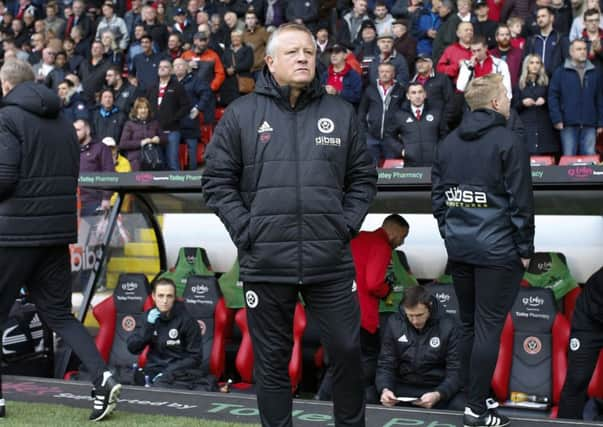Alan Biggs: Sheffield United showing why it's sometimes better that players do most of the talking


“If you weren’t doing your job it would be another player picking you out. Not the manager. There’d be arguments non-stop in the changing room. The manager sometimes sat back and let the players take care of it.
“Unfortunately, in today’s game those leaders that you want are fading away. I find it very difficult to watch academy football. Everyone’s doing the same thing in my eyes; it’s too quiet and should be a bit more vocal.”
Advertisement
Hide AdAdvertisement
Hide AdThis is John Sheridan is making a general point which, delivered by an ex-international and a modern day manager, is well qualified and undoubtedly holds true.
The fact he used to play at Sheffield Wednesday is very much beside the point.
Except for the reality that the environment he yearns for is very much still in existence – in one dressing room at least.
For all the sophistication of Sheffield United’s football under Chris Wilder, for which they are only now starting to get due credit, and for all their embracing of cutting edge sports science, at the core of everything seems to be a group of players who are able to govern themselves.
Advertisement
Hide AdAdvertisement
Hide AdIt’s surely the most remarkable aspect of the Blades’ resurgence and the biggest single reason why I think a genuine promotion bid can be sustained throughout the season.
Somehow in 2017 when, as Sheridan pointed out to me in an interview last week, “it’s the manager’s voice all the time” that you hear the most, Wilder and Alan Knill have assembled a team full of leaders by both character and example.
Not that I can imagine there are, or have been, too many dressing room rows in United’s surge to the Championship’s top two – or that the team doesn’t need managing at all.
But underlying all the rampaging football is a feeling, bordering on certainty, that the players themselves won’t allow standards to drop. And if they did, they’d have something to say about it.
Advertisement
Hide AdAdvertisement
Hide AdIt means, for instance, that in travelling the short distance to Nigel Clough’s Burton Albion tomorrow, a team United are firmly expected to beat, you can imagine no drop in intensity.
When that happened at QPR a couple of weeks ago, the manager did have something to say about it.
Judging from the response in the 4-1 hammering of Hull City, he won’t be expecting to intervene too often from this point.
And the reason is clear to see. It’s by imposing these standards on themselves that United are also imposing themselves on the opposition.
They play their way, to their strengths, without compromise.
Other teams now know what to expect, or should do - but for now it’s hard to see how they can do a damn thing about it.